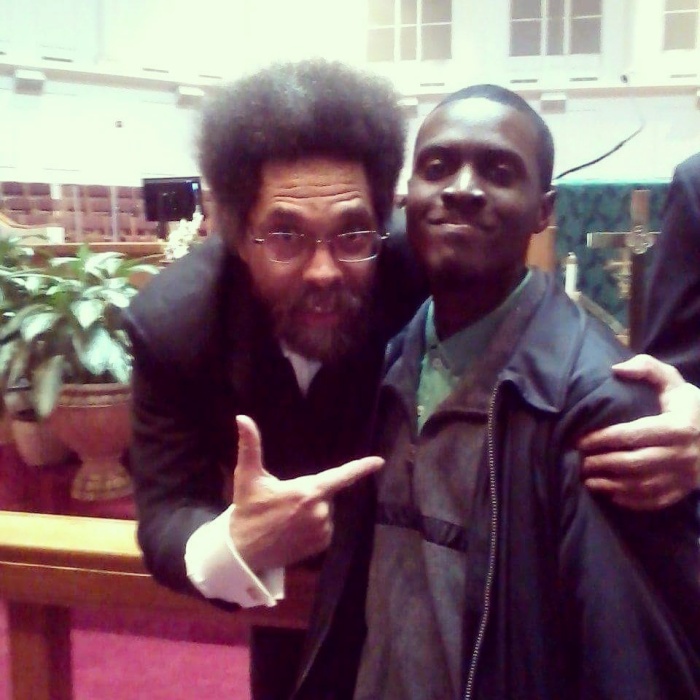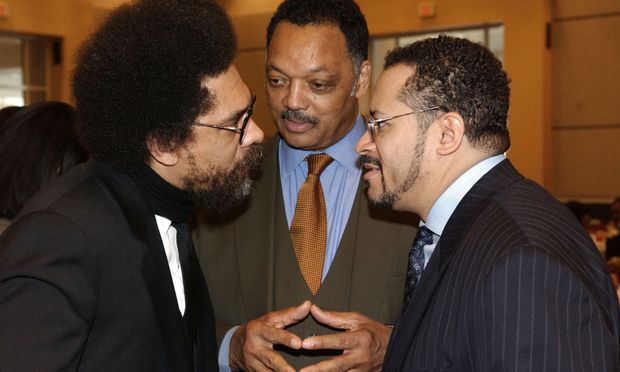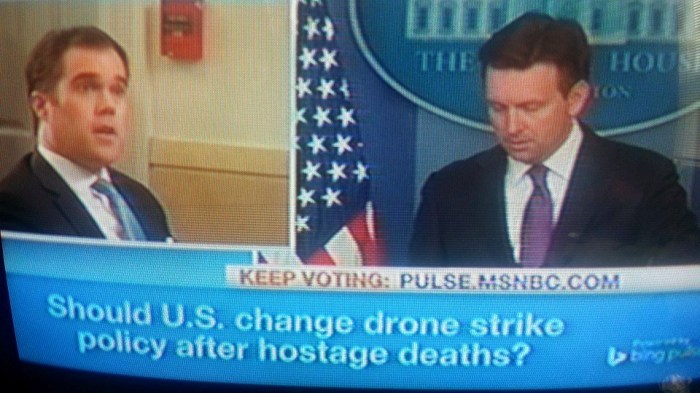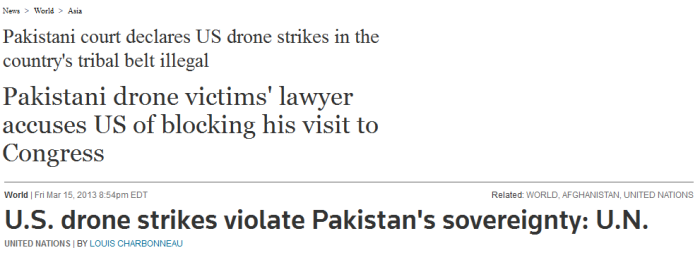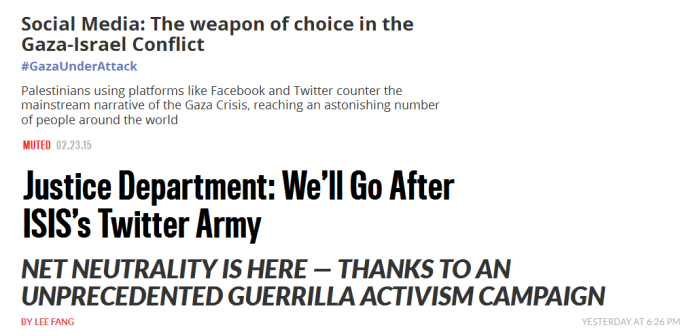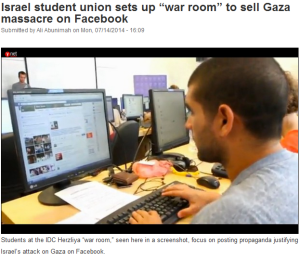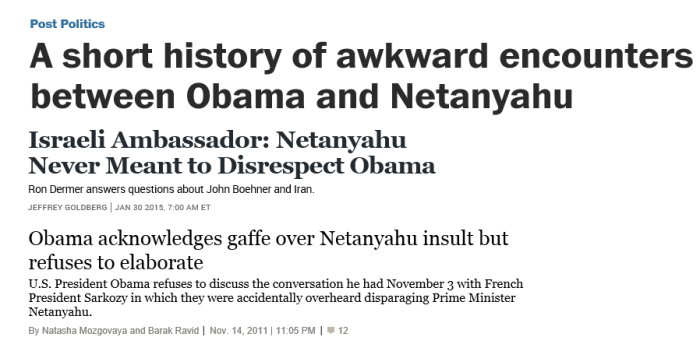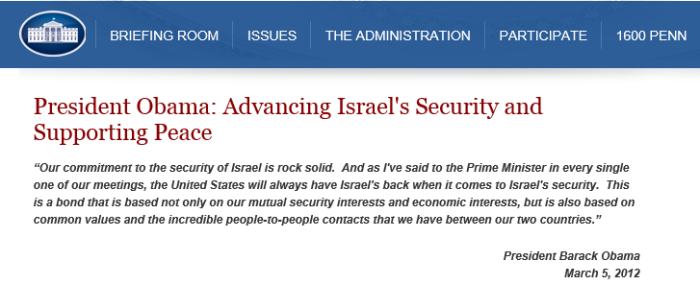
That President Obama’s recent agreement with Iran limiting its nuclear enrichment capabilities stands as a diplomatic victory remains largely undisputed in the most prestigious circles of academic and journalistic discourse. Without this deal Iranians, much like their Iraqi and Afghan neighbors, would have suffered the wrath of the US armed forces the argument goes. Disregarding the fact that Iran, as a signatory the Nuclear Non-Proliferation Treaty, has a legal right to enrich uranium and evidenced no intention to develop a nuclear weapon, the world is justified in breathing a sigh of relief knowing that “the greatest threat to world peace” is exercising its power less belligerently.
Nonetheless, this pause in international violence and aggression is unlikely to survive if some of the media’s most dedicated servants to power have their way. Enter New York Times columnist Thomas Friedman. In an article that can only be described as a toxic brew of anti-Arab racism, blatant falsehoods, and borderline criminal incitement we are provided a graphic illustration of the resilience of imperial doctrines in the American press and the psychological ease with which its most ardent enthusiasts petition its demands.
Headlined If I Were an Israeli Looking at the Iran Deal Friedman begins by stating if he were an “Israeli grocer” he would “hate [the nuclear deal] for enshrining Iran’s right to enrich uranium, since Iran regularly cheated its way to expanding that capability, even though it had signed the Nuclear Nonproliferation Treaty.” Notice Iran is “cheating” by disobeying US demands to restrict its capabilities, a capability legally protected under the NPT, but Israel (a non-signatory to the NPT) is not “cheating” in its casual disregard for every conceivable norm of non-proliferation.
Furthermore, it is not the nuclear deal that’s responsible for “enshrining Iran’s right to enrich uranium,” but the Nuclear Non-Proliferation Treaty. Not only has this been repeatedly declared by Iranian government officials but in 2012 the Non-Aligned Movement affirmed Iran’s “inalienable right to develop research, production and uses of nuclear energy for peaceful purposes.” Only under the assumption that the majority of the world and established international law should be subordinated to US rules of Good Behavior can we take Friedman’s contention seriously.
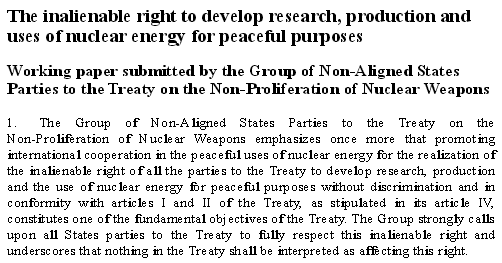 The same can be said of his condemnation of “Iran’s proxy, the Lebanese Shiite militia, Hezbollah.” Hezbollah, according to Friedman, “started an unprovoked war with Israel,” in 2006 “and when Israel retaliated against Hezbollah military and civilian targets, Hezbollah fired thousands of Iranian-supplied rockets all across Israel.” Here we have a total inversion of the historical record. That the 2006 war was a war of aggression by Israel (Washington’s proxy), and not Hezbollah, is so well documented that any argument otherwise can only be interpreted as a deliberate evasion of the facts if not apologetics for Israeli violence.
The same can be said of his condemnation of “Iran’s proxy, the Lebanese Shiite militia, Hezbollah.” Hezbollah, according to Friedman, “started an unprovoked war with Israel,” in 2006 “and when Israel retaliated against Hezbollah military and civilian targets, Hezbollah fired thousands of Iranian-supplied rockets all across Israel.” Here we have a total inversion of the historical record. That the 2006 war was a war of aggression by Israel (Washington’s proxy), and not Hezbollah, is so well documented that any argument otherwise can only be interpreted as a deliberate evasion of the facts if not apologetics for Israeli violence.
As scholar and activist Steven Salaita observed in his 2008 collection of essays Uncultured Wars: Arabs, Muslims and the Poverty of Liberal Thought, “the immorality of Israel’s wanton destruction [of Lebanon] does not present much of a political or ethical debate for those who would distinguish between military targets and civilian ones, or between terrorists and ordinary people. The problem is that American media repeatedly omitted either distinction, thereby transforming Israel’s aggression into an act of self-defense.” Hence, Friedman can write about how Israel “retaliated against Hezbollah military and civilian targets (my emphasis)”, the implicit assumption being Lebanese civilians were just as culpable in their deaths as Hezbollah fighters.
And the easy resort to dehumanization did not end here. Friedman proceeds to inhabit the mind of an Israeli general, proud and confident in the assertion that “No enemy will ever out-crazy us into leaving this region”, a sentiment with a great deal of merit in lieu of recent history. Yet we gain the most insight into the unadulterated racism that influences commentators like Friedman when he lays out Israel’s war strategy:
“Israel plays, when it has to, by what I’ve called ‘Hama rules’ — war without mercy. The Israeli Army tries to avoid hitting civilian targets, but it has demonstrated in both Lebanon and Gaza that it will not be deterred by the threat of civilian Arab casualties when Hezbollah or Hamas launches its rockets from civilian areas. It is not pretty, but this is not Scandinavia. The Jewish state has survived in an Arab-Muslim sea because its neighbors know that for all its Western mores it will not be out-crazied. It will play by local rules.”
Israel, a nation with a first world military and nuclear weapons, unleashes an aerial assault on densely populated strip of land, 50% of whose inhabitants are children. Over 2,100 people are killed, the majority Palestinian civilians. Hamas, a military faction under foreign occupation without a navy, air force, tanks, or a hegemonic military superpower bankrolling its soldiers, fires low-grade rockets into Israel killing 73 people, the majority Israeli soldiers (66). That anyone can be aware of this disparity in power and designate Hamas as the exemplar of “war without mercy” defies rational explanation, as does the ludicrous claim that “the Israeli Army tries to avoid hitting civilian targets.”
 It takes little effort to see that a vulgar racism underlies these conclusions. Nightmarish scenarios of the Jewish state being swept away by the turbulent “Arab-Muslim sea,” compels this island of western civilization and “Western mores” to “play by local rules”, namely the rules of “savages.” Inherent in this characterization is a sharp distinction between enlightened, restrained, white, Europeanized (“this is not Scandinavia”) Jews and crazy, impulsive, uncivilized Arabs so maniacal in their desire to kill Israelis that they would readily sacrifice the lives of their children to achieve this end (this human shield myth has also been thoroughly refuted).
It takes little effort to see that a vulgar racism underlies these conclusions. Nightmarish scenarios of the Jewish state being swept away by the turbulent “Arab-Muslim sea,” compels this island of western civilization and “Western mores” to “play by local rules”, namely the rules of “savages.” Inherent in this characterization is a sharp distinction between enlightened, restrained, white, Europeanized (“this is not Scandinavia”) Jews and crazy, impulsive, uncivilized Arabs so maniacal in their desire to kill Israelis that they would readily sacrifice the lives of their children to achieve this end (this human shield myth has also been thoroughly refuted).
Perhaps the greatest irony of Thomas Friedman’s latest contribution to the booming industry of anti-Arab racism is that he embodies perfectly the mindless bloodlust and impulsive thinking that he so baselessly directs at the people of Gaza and Lebanon. Informing readers on what he’d do as Israeli Prime Minister to diffuse any suspicions about Iranian misbehavior, Friedman states the following:
“So rather than fighting with President Obama, as prime minister I’d be telling him Israel will support this deal but it wants the U.S. to increase what really matters — its deterrence capability — by having Congress authorize this and any future president to use any means necessary to destroy any Iranian attempt to build a bomb. I don’t trust U.N. inspectors; I trust deterrence. And to enhance that I’d ask the U.S. to position in the Middle East the U.S. Air Force’s Massive Ordnance Penetrator (MOP), a precision-guided, 30,000-pound ‘bunker buster’ bomb that could take out any Iranian reactor hidden in any mountain. The Iranians would get the message.”
Essentially, Friedman is proposing that President Obama hold together a diplomatic agreement by threatening to drop a 30,000 lb. bomb on a sovereign country (a blatant violation of the UN prohibition against the threat of force in international affairs) citing the Mafioso doctrine that such an exercise in “deterrence” would force Iranians to “get the message.” Apparently, the “local rules” of military savagery expands beyond the provinces of ultra-violent, ethno-supremacist occupier states. These rules also must be advanced by their ideological courtiers in the American press lest the menacing unpeople of the “Arab-Muslim sea” get the impression that they can’t be “out-crazied.”
Any student of history will immediately recognize that Friedman is not the first and will by no means be the last to espouse this imperialist, orientalist, and racist worldview. Indeed, the perceptions put forth in his article permeate our academic, political, and intellectual culture so deeply that it would not be an exaggeration to describe them as foundational to the American national self-image. Nevertheless, the regularity of its expression does little to diminish its insidious influence in how we, as citizens of declining empire, think of the world around us and the solutions available to solve its many crises. So while Friedman peers out at the world through the eyes of Israeli generals and prime ministers we should dare to look at the world from the perspective of those who are victimized by their decisions. Hesitation in this regard would only prolong the needless suffering that only a genuine culture of solidarity with the oppressed can combat.
Source:
The Uncultured Wars: Arabs, Muslims, and the Poverty of Liberal Thought
http://www.huffingtonpost.co.uk/mehdi-hasan/gaza-israel_b_5624401.html
